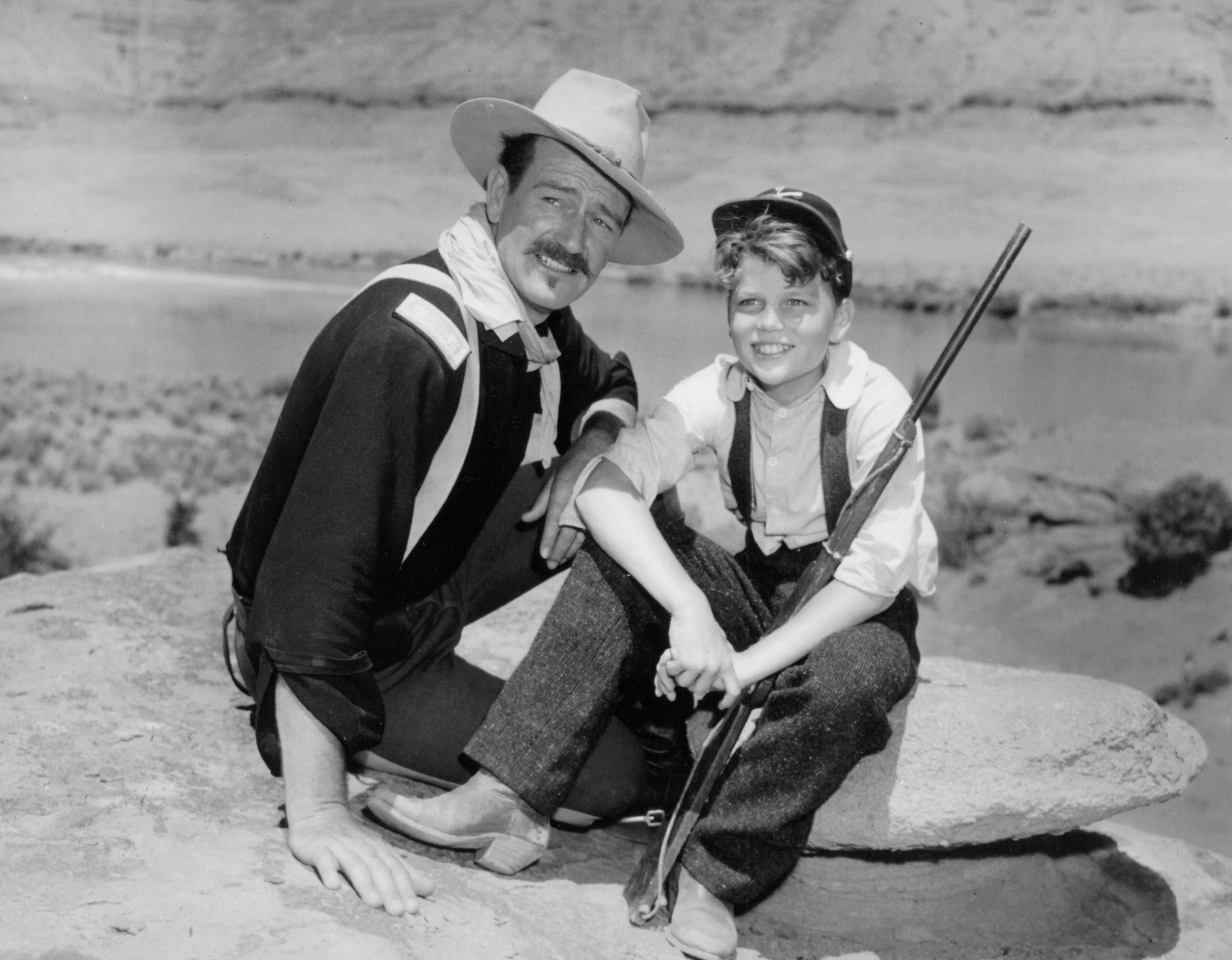Patrick Wayne has lived a life rich in variety and adventure, from time as a Coast Guardsmen to a long career in TV and film, and more recently, as chairman of the John Wayne Cancer Institute. To commemorate his birthday this July, the second eldest son of John Wayne and Josephine Alicia Saenz (daughter of the U.S. Consul General to Panama) shares reflections of a life exceptionally well-lived.
John Wayne (left) and Patrick Wayne (right) on the set of Rio Grande in 1950. Photo courtesy of John Wayne Enterprises
As told to Constance Dunn
Looking back at your many film and TV projects, are there some you feel particularly satisfied about having been part of?
A lot of them. I did an action adventure film for Disney called The Bears and I. You’re working with animals who don’t read scripts or memorize dialogue. Everything is pretty much ad-libbed, and you go with the flow and deal with the animals. That project came out really well. Also, the Sinbad film [Sinbad and the Eye of the Tiger] I worked on with characters that weren’t present, doing a lot of choreography and pantomime, worked out well.
Your grandparents were from Spain, and you recently went to Spain to receive a film award. Do you feel an innate connection with the country?
I have been traveling to Spain since the late ‘60s [for] film, and each time I went I felt at home, very comfortable. I can only explain that by the fact that it was in my genes. I’ve been all over the world, and I have not had that same feeling in other parts of the world.
Does on-camera work feel like play time for you?
Completely play time. Child’s play. I’ve been doing it since I was nine years old. You learn so much when you don’t even know you’re learning. You experience so many things without putting it to pencil and paper, or doing exercises or drills. You have to develop skills for being able to get into character and you have to learn things, special skills such as sword fighting or horseback riding or working on a welding machine. But the actual work itself is play acting.
You had the opportunity to work with your father as an actor. What was the best part of these experiences?
At that time, I had a brother and two sisters. We were always competing for his attention. When a film came around, I had him all to myself. That was a very special experience for me.
Did he pull you aside on the set and offer you acting advice?
He wasn’t a person to give advice on any level, whether it be professionally, or education, or whatever. I think he operated by example. I learned a lot about being a professional from just watching him—being prepared, and ready and on time.
It is said that your father never lost touch with his humble beginnings, and was comfortable with people from all walks of life. Is this a trait that he helped you cultivate?
That’s true, but those things were very personal to him. I did not have the same kind of experience; I did not come from humble beginnings. He would walk into a room and everything would stop. But in five minutes he could engage you in a conversation and you would feel like you knew him all your life.
When you think of the many things you’ve done in life so far, are there some that have felt more natural or right for you?
The film work was great, but I’m probably in the most rewarding career in my life right now, watching the development of [The John Wayne] Cancer Institute—the work that they do and the goals that they set for themselves. Seeing accomplishments from day to day, and year to year. It’s really an exciting time and it’s great to be at the helm.
To learn more about the John Wayne Cancer Foundation and the John Wayne Cancer Institute, visit johnwayne.org.



